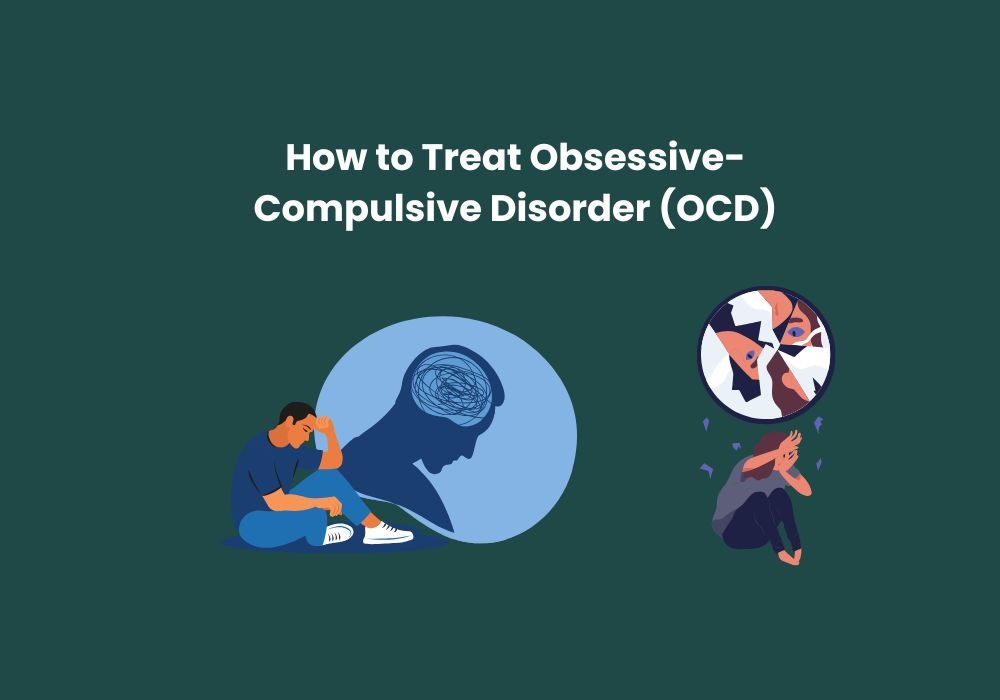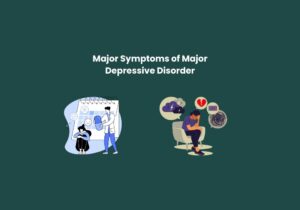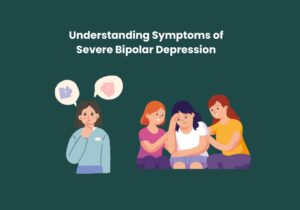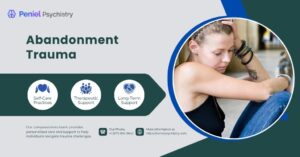Obsessive-Compulsive Disorder (OCD) is a long-term mental health problem. It triggers unwanted thoughts that cause people to feel upset. These are called obsessions. People may also repeat certain actions or thoughts. These are called compulsions. They do this to lower their anxiety.
Treating OCD works best with more than one approach. This may include therapy, medicine, and self-care steps. In this article, we look at the most helpful treatments for OCD. The aim is to help people feel better and live a good life.
Mental illness encompasses a wide range of mental health conditions that affect a person’s mood, thinking, and behavior. Before starting this topic, check out our previous blog post, Understanding the Spectrum of Mental Illness.
Effective Treatments for Obsessive-Compulsive Disorder (OCD)
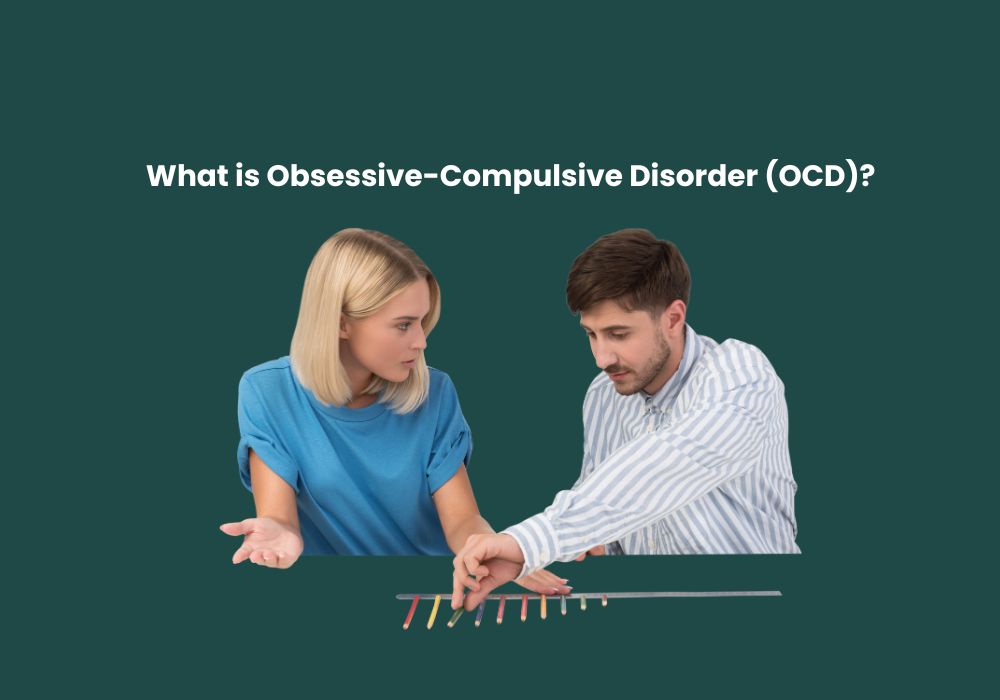
1. Cognitive-behavioral therapy (CBT)
Exposure and Response Prevention (ERP):
- What It Is: ERP is a type of CBT. It works well for OCD. It means facing scary thoughts or things (exposure) and not doing the usual habits (response prevention).
- How It Works: A therapist helps the person face fears, step by step. They do this while stopping the habits. This lowers fear over time. The goal is to break the loop of fear and habits.
- Benefits: ERP can significantly reduce OCD symptoms. It is the leading and most trusted treatment for OCD.
Cognitive Restructuring:
- What It Is: This involves identifying and challenging false or unhelpful beliefs associated with obsessions.
- How It Works: The therapist guides the person to notice and change harmful thinking patterns that lead to obsessive-compulsive actions.
- Benefits: This approach helps people develop more effective thought patterns and reduces the intensity of obsessive thoughts.
2. Medication
Selective Serotonin Reuptake Inhibitors (SSRIs):
- Common Medications: Fluoxetine (Prozac), Sertraline (Zoloft), Fluvoxamine (Luvox), and Escitalopram (Lexapro).
- What They Do: These medicines are called SSRIs. They raise serotonin levels in the brain. This can help ease OCD symptoms.
- How They Work: SSRIs are often the first drugs doctors give for OCD. They may be used alone or with CBT.
- Benefits: SSRIs can reduce how often obsessions and compulsions happen. They can also make them less intense for many people with OCD.
Other Medications:
- Clomipramine (Anafranil): A tricyclic antidepressant that is also effective for treating OCD.
- SNRIs: Such as Venlafaxine (Effexor XR), may be considered if SSRIs are not effective.
3. Combination Therapy
- When to Consider: Some people do not improve enough with CBT alone or medication alone. In these cases, using both CBT and medication together is often best.
- Benefits: Combining CBT with medication can be more effective than using either alone. This approach targets both behavior patterns and brain chemistry linked to OCD.
4. Advanced Therapies
Deep Brain Stimulation (DBS):
- What It Is: A surgical treatment that involves implanting electrodes in specific brain regions to regulate brain activity.
- When It’s Used: Considered for severe, treatment-resistant OCD.
- Benefits: DBS can significantly relieve symptoms for individuals who do not respond to other treatments.
Transcranial Magnetic Stimulation (TMS):
- What It Is: A non-invasive procedure that uses magnetic fields to stimulate nerve cells in the brain.
- When It’s Used: An option for individuals with OCD who have not responded to medication or CBT.
- Benefits: TMS can reduce OCD symptoms and improve overall functioning.
Ketamine Therapy:
- What It Is: Administered under medical supervision, ketamine has shown rapid antidepressant effects.
- When It’s Used: For individuals with severe, treatment-resistant OCD.
- Benefits: Ketamine therapy can provide quick relief from symptoms, but is generally considered a temporary solution while other treatments are explored.
5. Self-Help Strategies and Support
Self-Help Techniques:
- Mindfulness and Meditation: Practices that help manage anxiety and stress associated with OCD.
- Stress Management: Techniques such as deep breathing exercises, yoga, and progressive muscle relaxation.
Support Groups:
- What They Are: Groups where individuals with OCD can share experiences, offer support, and learn from each other.
- Benefits: Support groups can provide emotional support, reduce feelings of isolation, and offer practical advice for managing OCD.
Educational Resources:
- Books and Online Resources: Resources that offer information on OCD and strategies for managing symptoms.
6. Lifestyle Changes
Healthy Habits:
- Regular Exercise: Can help reduce symptoms of depression and anxiety associated with OCD.
- A balanced diet supports overall mental and physical health.
- Sleep Hygiene: Good sleep practices improve mood and reduce OCD symptoms.
Stress Reduction:
- Time Management: Effective organization and prioritization of tasks to manage stress.
- Relaxation Techniques: Methods such as progressive muscle relaxation and guided imagery.
Frequently Asked Questions on OCD Treatment
Can OCD be cured entirely?
No, OCD is usually a long-term mental health condition, but with proper treatment and support, symptoms can be significantly managed.
What is the most effective therapy for OCD?
Exposure and Response Prevention (ERP), a form of CBT, is considered the most effective therapy for treating OCD.
Can OCD be treated with medication alone?
Medications like SSRIs can reduce symptoms, but combining them with CBT or ERP therapy usually provides the best results.
When are advanced treatments like DBS or TMS needed for OCD?
If standard therapy and medication don’t bring sufficient improvement, treatments such as Deep Brain Stimulation (DBS) or Transcranial Magnetic Stimulation (TMS) may be considered.
How effective are self-help strategies in managing OCD?
Yes, practices like mindfulness, stress management, joining support groups, and maintaining a healthy lifestyle can significantly help in managing OCD symptoms.
Conclusion
Treating Obsessive-Compulsive Disorder (OCD) takes more than one step. It often includes therapy, medicine, changes in daily habits, and self-help tools. OCD can be hard to manage. However, there are proven treatments that are effective. These can ease symptoms and help people live better lives.
At Peniel Psychiatry, we have a skilled team ready to help. Our care plans are tailored to meet each person’s individual needs. If you or someone you care about has OCD, we’re here for you. Get in touch to find expert help and real support as you move forward.

